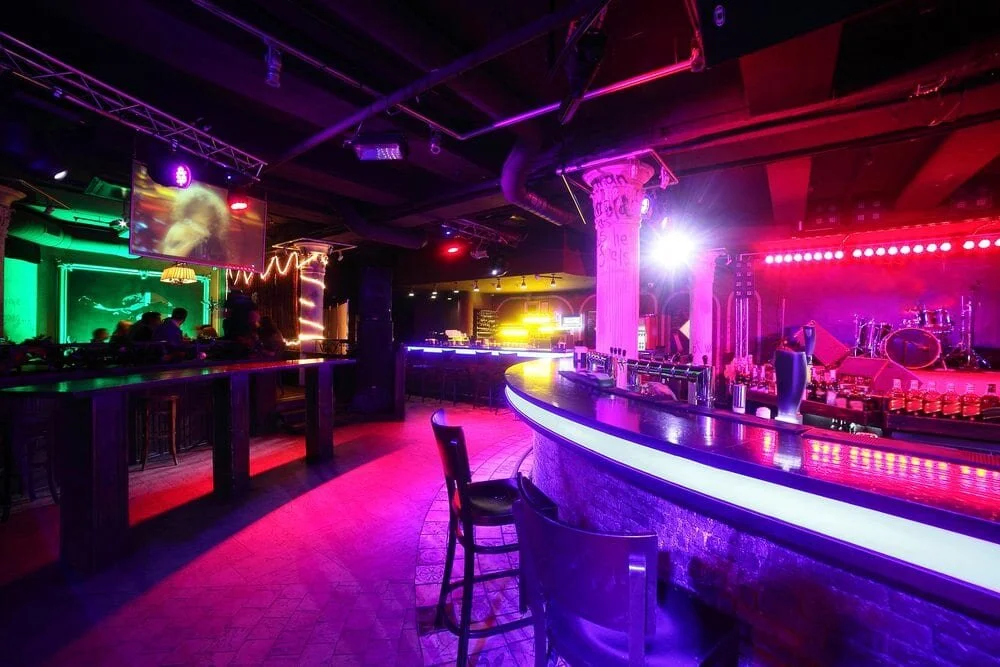How To Start a Nightclub When the Pandemic is Over
Thanks to the pandemic, the UK’s nightlife and clubbing scene looks sad and stark. Venues are shut, club nights are on hiatus, and community spaces have had to turn people away. Chancellor Rishi Sunak has even suggested that music industry workers should retrain and find different jobs.
This, obviously, sucks. But out of political turmoil and economic ruin, new cultural movements always emerge – the birth of hip hop in post-industrial New York and grime’s resurgence following the coalition government’s austerity, are notable examples. There is hope for club culture yet.
So, if you’re twiddling your thumbs and waiting for things to return to normal, why not invest some time in thinking about creating an era-defining music scene or cultural revolution in your own town or city? Believe it or not, it usually starts with someone who’s got zero experience but loads of enthusiasm. Interested? Here’s the pros’ step-by-step guide to setting up a scene in your city:
Step 1: Find a space that needs filling
Whether you want to start a club night, launch a community space or open your own venue, addressing a need should always be your starting point.
Stephan Skelly, who ran Blackpool’s best rated live music venue Bootleg Social, says that he and a friend became business partners and opened a space, after realising that Blackpool “had no dedicated grassroots music venues, no original live music scene any more and no real venue that was catering to the alternative or indie music community.” Before then, he ran a website promoting and reviewing gigs in his hometown.
In Manchester, Nickos Arnaoutis set up Hidden – winner of ‘Best Small Club in the UK’ at the 2016 DJ Mag Awards and home to events such as LGBTQ+ celebrating night Homoelectric – after realising there was a need for a space like theirs. “There was something missing in Manchester’s underground music scene, there wasn’t the variety that should be there, which we felt was a void that needed filling,” he recalls of the club’s beginnings in 2015.
Step 2: Be inclusive
Thinking about what other people might want, is also important, counsels Sofya Staune, who runs Glasgow bass-focusing night FUSE. “If you’re a cis white man who wants to run a drum ‘n’ bass night for example, it’s important to not only go off, ‘I want my pals there to listen to music that we all like,’ but to stop yourself and say, ‘how can I make it so other people feel included and welcome too?’” they say.
Step 3: Choose a suitable location
FUSE was launched at Glasgow’s Art School venue, when Sofya and FUSE co-founder Faolán were students there, allowing them to use it for free. This meant they could play around with the format and pricing, without worrying too much about overheads. Still, Sofya cautions to think about starting an event in a big space, even if it comes at a reduced price. “If fifty people turn up to a small room, it’s going to be such a different vibe than when there’s fifty people in a massive assembly hall.”
So, they say, “while it’s good to have grand ideas especially when you’re a student with access to free space, it’s also important to be realistic.” For Manchester’s Hidden, whose name is a nod to the club’s location on the outskirts of the city centre, it was important to find a space which would attract a crowd passionate about the music the club was playing, rather than any trouble-causing passing trade. “If we were a club right in the city centre, we’d get stag dos coming in. Being where we are helps filter out the clientele that you might not want to have there,” says Nickos.
Step 4: Get advice
“The one thing I wish I was aware of from day one, is the existence and support available from the Music Venue Trust and the community of members within it,” says Stephen, who spent six months renovating the dilapidated space that became Bootleg Social before being able to open. “Before joining the MVT I thought we were the only people experiencing the difficulties that come with running a venue, but then after attending the regional and national meetings I discovered that everyone is having the same or very similar issues and facing similar hardships,” he says.


